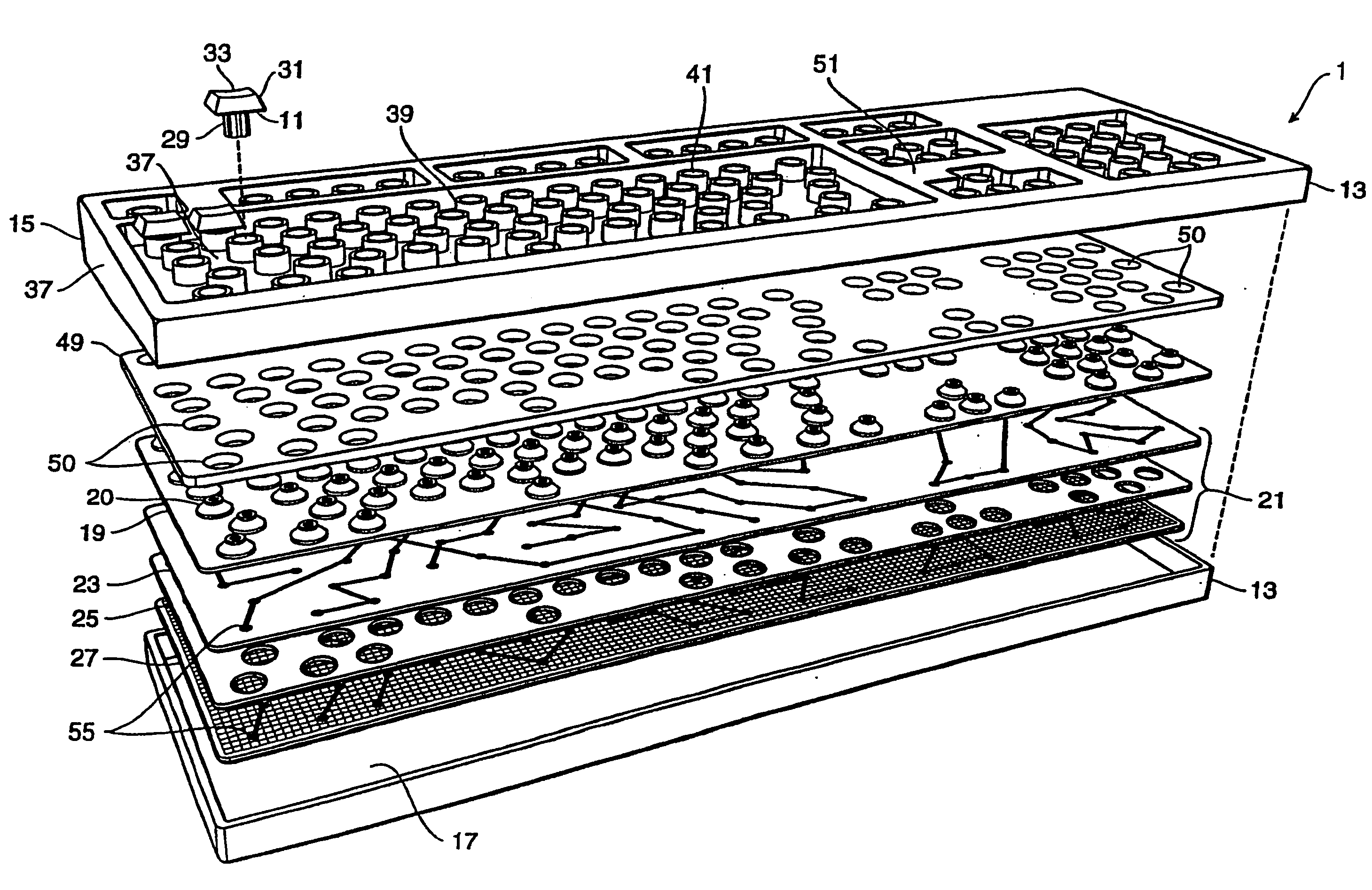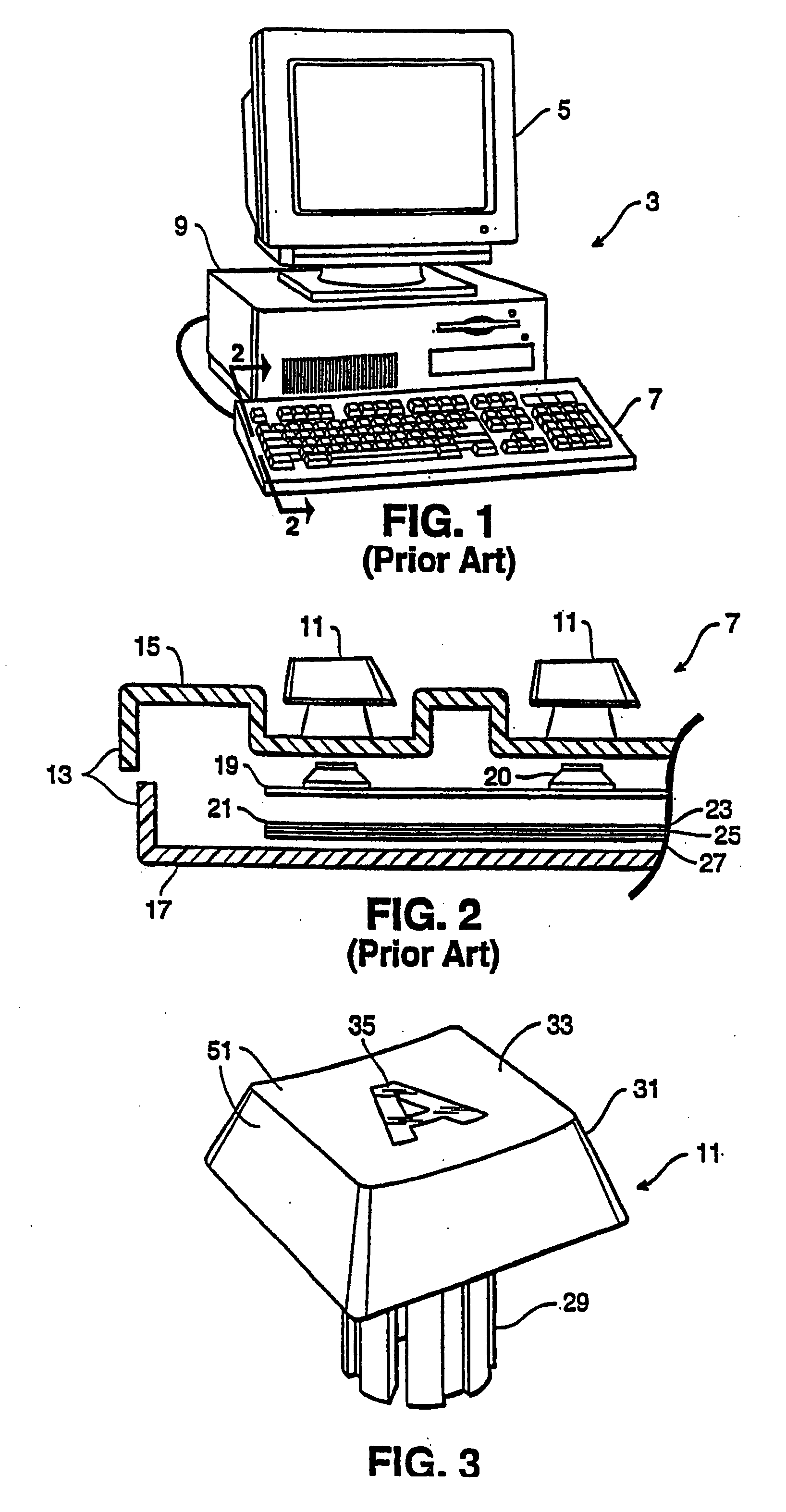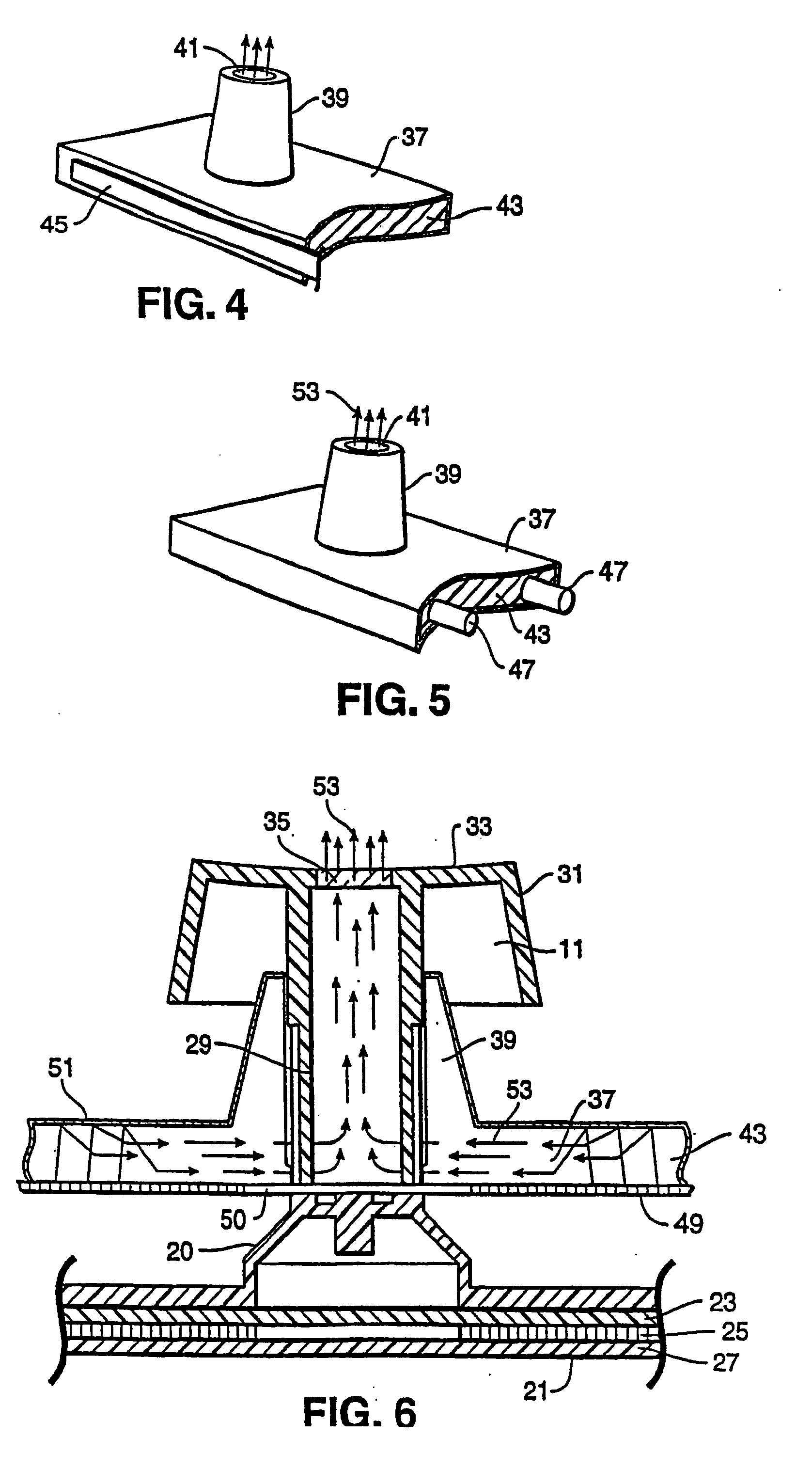Illuminated keyboard
a key member and illuminated technology, applied in the field of keys, can solve the problems of straining eyes of keyboard operators, difficulty in recognizing the symbol appearing difficulty in recognizing the symbol on the top of the key member, so as to reduce power consumption
- Summary
- Abstract
- Description
- Claims
- Application Information
AI Technical Summary
Benefits of technology
Problems solved by technology
Method used
Image
Examples
Embodiment Construction
[0082]While the present invention is susceptible of embodiment in various forms, as shown in the drawings, hereinafter will be described the presently preferred embodiments of the invention with the understanding that the present disclosure is to be considered as an exemplification of the invention, and is not intended to limit the invention to specific embodiments illustrated.
[0083]Referring to FIGS. 1-3, keyboards are required to operate numerous apparatus including computers, typewriters and personal organizers, as well as aircraft and vehicular instrument panels. A typical prior art keyboard 7 is shown in FIG. 1 for use with a computer 3. The computer 3 also includes a central processing unit 9 and monitor 5. By pressing key members 11 on the keyboard 7, one sends signals to the central processing unit 9 instructing the computer 3 to perform various functions.
[0084]As shown in FIG. 2, a typical keyboard 7 includes a housing 13 comprising an upper clamshell member 15 and lower cl...
PUM
 Login to View More
Login to View More Abstract
Description
Claims
Application Information
 Login to View More
Login to View More - R&D
- Intellectual Property
- Life Sciences
- Materials
- Tech Scout
- Unparalleled Data Quality
- Higher Quality Content
- 60% Fewer Hallucinations
Browse by: Latest US Patents, China's latest patents, Technical Efficacy Thesaurus, Application Domain, Technology Topic, Popular Technical Reports.
© 2025 PatSnap. All rights reserved.Legal|Privacy policy|Modern Slavery Act Transparency Statement|Sitemap|About US| Contact US: help@patsnap.com



